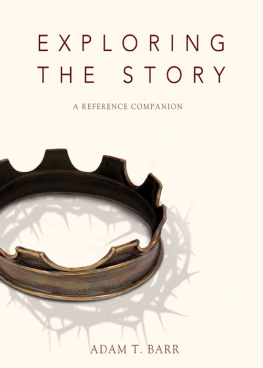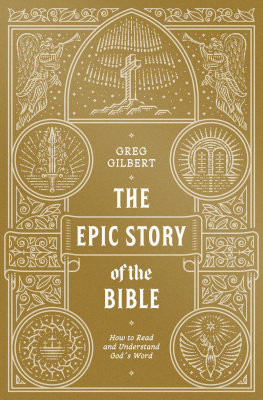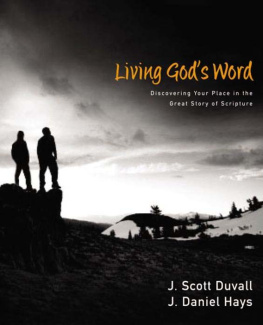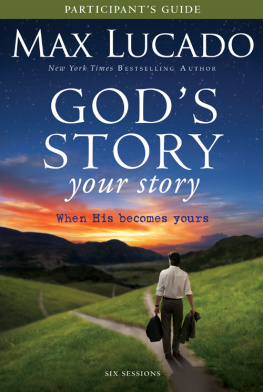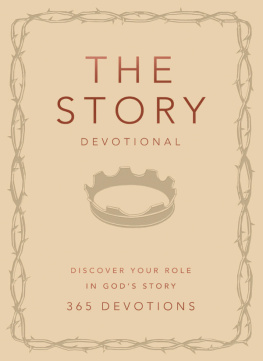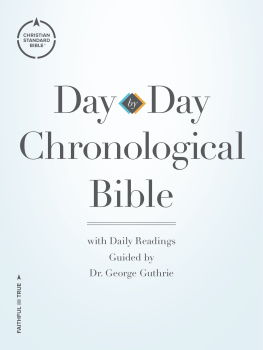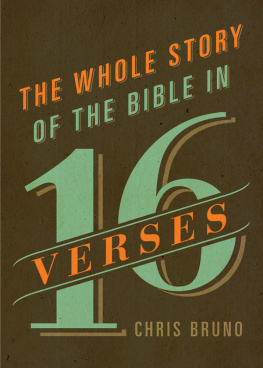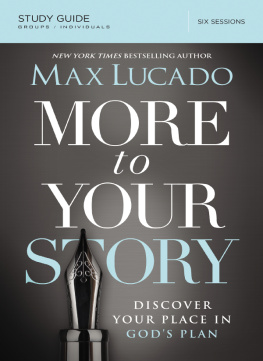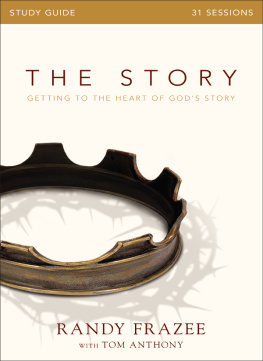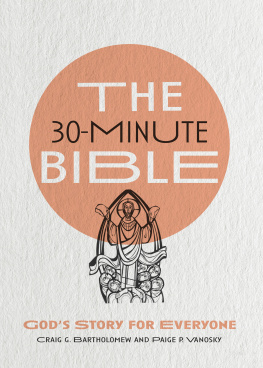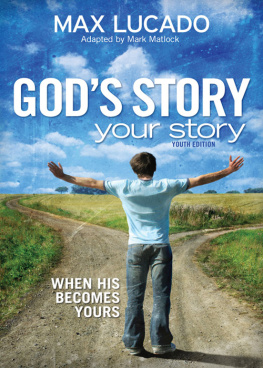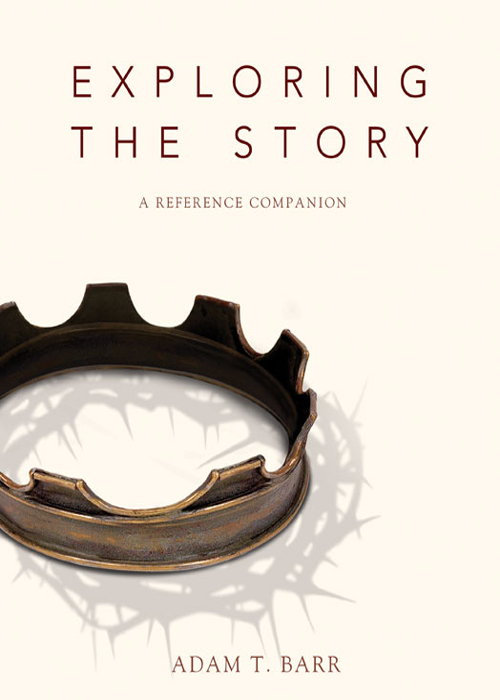In addition to these chapters, I would refer you to the appendix. There you will find a brief annotated bibliography that will help you expand your investigation. I pray you will find your journey through The Story as exciting as I did!
CREATION
The Beginning of Life as We Know It
Plot Points
- God, the main character of The Story, is revealed as the absolute sovereign of creation, totally distinct from yet intimately involved with all he has made.
- Nature is not simply a collection of random, meaningless matter in motion; it is a carefully crafted revelation of a loving God.
- Humanity, made in Gods image, occupies a unique role and position in this creation, a place of dignity and responsibility.
- Humanitys tragic rebellion against Gods command impacts everything.
- God has a plan to redeem his fallen creation, giving us a hint of the good news to come in his promise that a descendant of Adam and Eve will crush the serpent.
- Throughout the New Testament, the flood story forecasts Gods future and final judgment (e.g., Matt. 24:3739; Luke 17:2627; 2 Peter 2:410).
The Days of Creation

Cast of Characters
Abel. Son of Adam and Eve; younger brother of Cain; a shepherd and devoted worshiper of the Lord; killed by his brother; name means vanity, breath, vapor.
Adam. First man, made from earth; husband of Eve; like his wife, Eve, made in Gods image; tragically disobeyed Gods prohibition and affected all of human history; name can mean man and is closely related to the Hebrew word for ground (adamah).
Cain. Son of Adam and Eve; older brother and murderer of Abel; ancestor of Lamech, who killed indiscriminately (see Gen. 4:2324); name sounds like the Hebrew for gotten, conveying the sense of optimism Eve held for his life.
Eve. First woman, made from man; husband of Adam; tempted by Satan in the form of a serpent, disobeyed Gods command; name means living.
God. Creator of all things and central character of The Story; God chose to reveal himself to us through his creation.
Noah. Descendant of Adam and Eve; a righteous man, blameless among the people of his time (Gen. 6:9); commanded to build a great boat to save himself and his family from the flood God sent to wipe out everything having the breath of life (Gen. 6:17); name sounds like rest in Hebrew, expressing his parents hope that he would help bring rest from the effects of the curse.
Shem, Ham, Japheth. Noahs three sons; called to help increase in number and fill the earth (Gen. 9:1) after the flood.

God measures the earth he has created in this
illustration from a mid-thirteenth-century Bible.
Chapter Overview
The first nine chapters of Genesis have raised questions throughout church history. What kind of literature re these passages? How do the events described here relate to the theories formed by contemporary scientists and archaeologists? Are the days twenty-four-hour segments or ages, long periods of time? Was the flood local, covering the known world, or was it global, covering the entire planet?
These questions are significant. They lead us to think deeply about the purpose of Scripture, and Christians who take Scripture as seriously as Jesus did will not be content simply to write these questions off as academic. To work toward the answers we seek, it is helpful to begin by reflecting on the central narrative intent of these chapters. For the people of Israel and for us today, they reveal why the world we see and know is the way it is. They help us grasp what it means to be human and the causal forces that shape our lives. These are questions of existence and meaning.

Possible locations of the garden of Eden.
Think about the fall and the disobedience of Adam and Eve in Genesis 3. The fruit of their rebellion against God is a series of curses, each of which takes a good, God-ordained source of blessing and twists it into a form of heartache work is now toil, marriage a battle, childbirth a painful ordeal. Consider the flood as well. In this story we see a reversal of Gods work in creation as the life and the land that had come from the sea is now covered and destroyed by the waters of chaos and judgment. The stunning beauty and heart-wrenching tragedy of our world is explained and understood through these stories, helping us understand why something good has gone terribly wrong.
Gods Word invites us to consider the powerful connections between the original world God created, our disobedience, and our ongoing relationship to God. We are invited to consider how human disobedience has universal implications. Although we often think of our choices as individual decisions that dont impact other people (If it doesnt hurt anyone else, its not a problem), this chapter shows us that the simple act of eating fruit, if done in disobedience to God, can lead to suffering and death for everyone. The choices and decisions we make in this life are writing a moral drama, and our every deed illustrates how we embrace or reject our Creator God.

